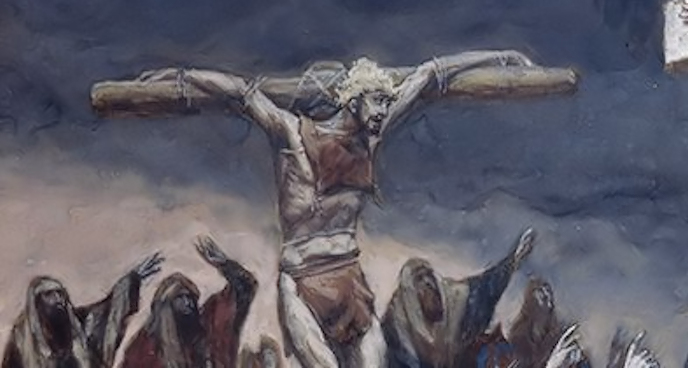“And he said unto Jesus, Lord, remember me when thou come into thy kingdom,” (Luke 23:42).
Christ was often found in the company of sinners, and the day he was crucified was no different. On Calvary’s hill Christ was flanked by two criminals – one on each side – paying for their crimes to society with their life. The one to his left was oblivious to the truth that God’s grand plan of redemption was being carried out right before his eyes, for he chose to spend his final dying breaths in concert with the crowd below him taunting and reviling and challenging the Lord to come down off the cross and save them all from this gruesome death.
But the response of the criminal on his right side was altogether different. Because within a few moments of encountering the Lord, the spiritual eyes of this man were opened by the Holy Spirit, allowing him to see the mutilated form hanging beside him as the innocent Lamb of God. As a result, in an instant he was transformed from reviler to repentant believer. How wonderful in his humility and fearless faith does this sinner not only proclaim the state of his own condition but that of the Savior’s as well when he says, “we deserve to die, but this man has done nothing wrong!” (Luke 23:41).
This thief knew his punishment of death was well deserved. But in truth, we all deserve to die, because as Paul reminds us, “we all have sinned,” (Rom. 3:23) and “the wages of sin is death,” (Rom. 6:23). So instead of mimicking the request of the other thief, he humbly asks, “Lord, remember me when you come into your kingdom,” (v. 42). Because once his eyes of faith were opened, he knew this man hanging beside him was truly the King, the Messiah.
An interesting note is that the thief’s request to be remembered by Christ came at the same time the Son of God was forsaken by his Father (Matt. 27:46). And yet through his spiritual eyes, he saw beyond Christ’s present misery to his ultimate glory when so many others could see nothing but a mutilated form of humanity.
What amazing mercy from the Savior! For while Christ begs for water, he is rewarding this thief with heaven, even though it is his first request and uttered with his last gasp of breath. He forever frees him at that very moment from the grip of eternal death and secures passage for him into the glories of eternal life. To this despicable soul who deserved the full measure of society’s worst punishment for his crimes, Christ grants full access to heaven to be with him and the Father forever.
Our divine designer weaves faith together with all those aspects of salvation – calling, justification, sanctification, and glorification – in so narrow a compass as the hour of death, and then he bestows so great a salvation on this thief who, that very day, was welcomed into Paradise with God.
Contemplations:
- Lord, even though you chose to save this thief at his last, dying gasp, I do not need to make his success in entering the kingdom my security for he did not know you until that point.
- You saved him from eternal death during his last moments on earth, but that does not mean I may presume you would do the same for me or anyone else. In other words, just because you caused Balaam’s donkey to speak once (Num. 22:28) does not mean that I should expect another donkey to also speak. For what you have made peculiar, I may not make common (Acts 10:15).
- Lord, true repentance is never too late, and late repentance is seldom true. Let me take then a wise man’s counsel to humble myself before I am sick, for you require the first fruits in your sacrifice and reject the blemished (Exod. 23), the blind, and the lame (Lev. 23). Do not let me then expect to sacrifice my youth, my strength, and my health to sin and hell, only to lay my old and withered bones on your altar. But with hearty David, may it ever be my resolution, “O Lord thou art my God, early will I seek thee,” (Ps. 63:1).
- Let me hear you now while it is today, while you stand at the door of my heart and knock for entrance (Rev. 3:20), lest at last when night comes, you do not hear me. If this thief fared well, let me not then fare worse; and let me by this learn to bless and to trust, but not to tempt your mercy.
Further References for Luke 23:42
Psalm 106:4; Isa. 9:6-7; Matt. 19:28; Matt. 28:18


